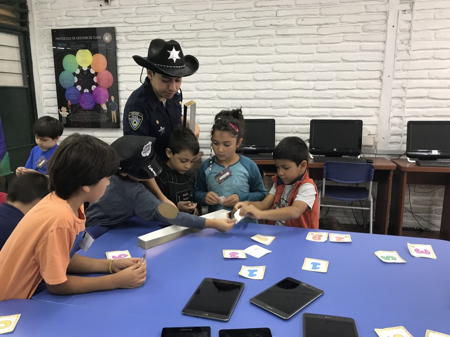Should you move to another country, found another company, live away from your husband or all of the above?
Should you apply for Startup Chile?
I’ve been asked this question by a couple of people recently and here is my answer. Startup Chile was a great experience and although I wouldn’t do it for a second time, I’d highly recommend doing it once. If you make the effort, one big advantage of living in Chile is your Spanish will improve greatly. I’m trying to listen to podcasts, follow people on social media in Spanish and keep up with online courses but it is nothing like being there.

You’ll learn the difficulty of starting and maintaining a company in a country where you aren’t fluent in the language
A lot of entrepreneurs talk about “the global market” in their pitches to investors as if they had any idea what they were talking about. Ha, ha, ha! Let me pause to laugh at how laughable this is.
If we had not hired Maria Paz Jorquera early on, and then Daniel Mondaca to take up where she left off, I don’t know how we would have made it. People assume they will “get by” with Google translate and whatever Spanish they learned in high school. That may work for a week of vacation in Patagonia but to have a successful startup, you need to do one hell of a lot more than get by.

Where Startup Chile was a huge benefit to us was connecting us with potential customers (huge shoutout to Casa W and Pablo in Concepción also) and with great people we could hire who were bilingual. One reason we have been able to maintain an office in Santiago, unlike the 80% of companies that don’t maintain a presence in Chile after the accelerator program is over is that we hired Daniel, who is Chilean, speaks perfect Spanish and knows about all kinds of things like SII and RUT and CORFO and other acronyms, to run our Chile operations.
After doing a new startup in a new country in your second language, everything else in life seems easier.
I’m in Melbourne, Australia at the moment, having just given a talk at the Tech Inclusion conference yesterday. People are surprised that I flew 19 hours to a country I had never been to give a talk, and that I am staying here by myself, telecommuting and seeing a bit of the country. I don’t see it as a big deal at all. Hey, my talk was in English. After spending months by myself in Santiago, really, a week in Melbourne isn’t such a challenge.
Why isn’t there a Start-up Australia?
How different is Melbourne from Santiago or Los Angeles?
To a certain extent, all big cities are alike. The downtown is full of business people in suits. They have an airport, hotels, public transportation, a huge number of restaurants for a range of budgets.
Well, Captain Obvious here, the language in Australia is English which makes it several times easier to get around than in Chile, unless you are fluent in Spanish, which I am not.
Also, while Australia cannot compete with Chile in the mountain category, they have a lot of types of wallabies, so there is that going for them. Seriously, though, I think Australia and New Zealand are missing a huge opportunity by not implementing a Start-Up Oz and Start-up NZ program. Without the language barrier for Americans, British and Canadians, I think they would be swamped with applicants and it would really be rocket fuel to their economy.

What about your husband?
When people hear that I lived in Santiago for a year without my husband, or that I am traveling to Australia without him or going on a road trip by myself, there is often this unstated assumption that something must be wrong. Well, as a friend of mine said about her husband who travels often for sales meetings
How will I miss you if you won’t go away?
t’s more than having some time apart – and since we often work at home in the same house, we have plenty of time together. There is also allowing your spouse to have completely different interests and personality. He doesn’t like to travel while I feel as if there is a lot of the world I haven’t seen yet.

It seems like a lot of couples believe that married life comes down to an either/or. Either he comes with me when I travel or I stay home. If you have different ideas of what you want to do, that comes down to one of you being dissatisfied. My husband is a grown man. He was 42 years old when we married so I know that he is perfectly capable of fending for himself without me around to make sure he eats his vegetables and drinks his milk. He’d rather have tortilla chips and gin anyway.
Sometimes he comes with me or we meet up when I am traveling. We went to New York City together to watch our daughter in Wrestlemania. When I was in Chile, he came for a few weeks and we went to the Atacama Desert for our 21st anniversary.
I’d suggest that if you’ve been together over 20 years, your relationship is going to be able to handle some time apart, if that’s what you want to do. If you both want to just stay home on barbecue, that’s fine, too. Sounds delicious. Please invite me the next time I’m in town.
Will no one think of the children?

That’s another question I get often. Don’t I miss my children when I am traveling? Not nearly as much as I missed them when I was traveling when they were younger. My youngest daughter is 21. My children have their own lives. Sure, we get together for holidays and the occasional lunch or dinner, but they have jobs, husbands, friends, classes. Of course I always love to see them because they are awesome.
At some point, women need to have their own lives.
I think that point is every day from the time you are born, personally. So, yes, I learned a lot in Startup Chile, made valuable contacts and became even more like I already was.
Hey, since you are still here, check out this game! Play in English or Spanish.
Use your knowledge of statistics and history to survive. AzTech: Meet the Maya can be played in English or as a bilingual English/Spanish experience.

